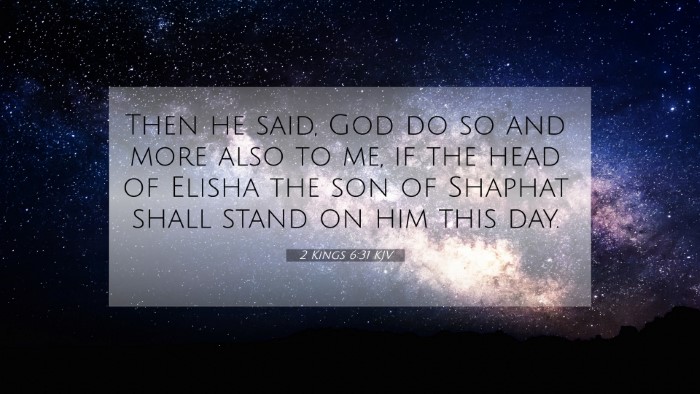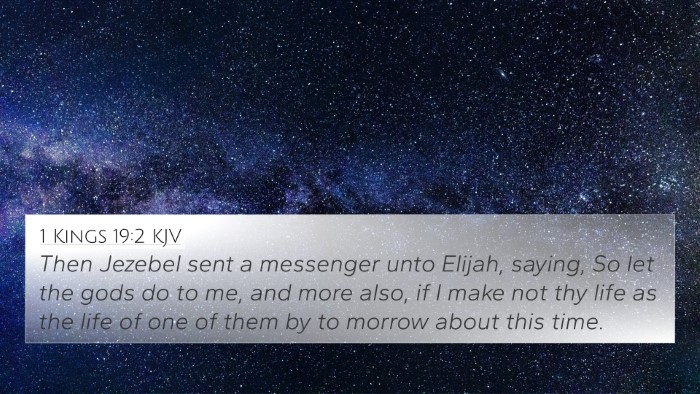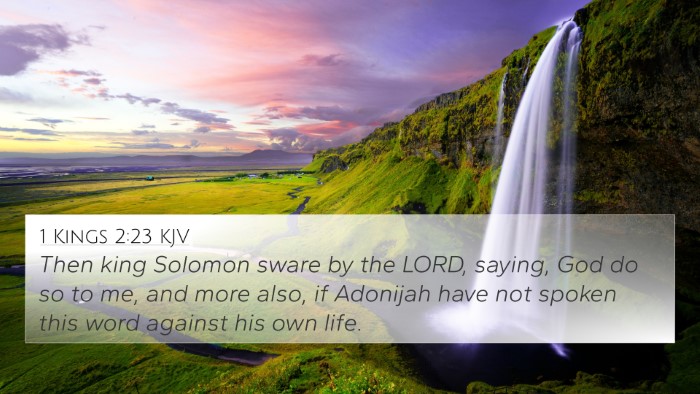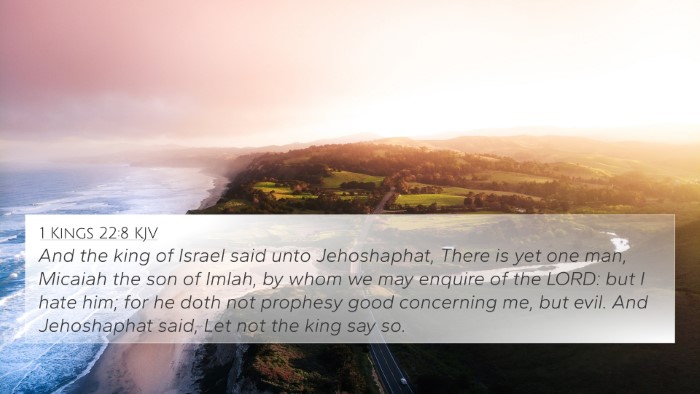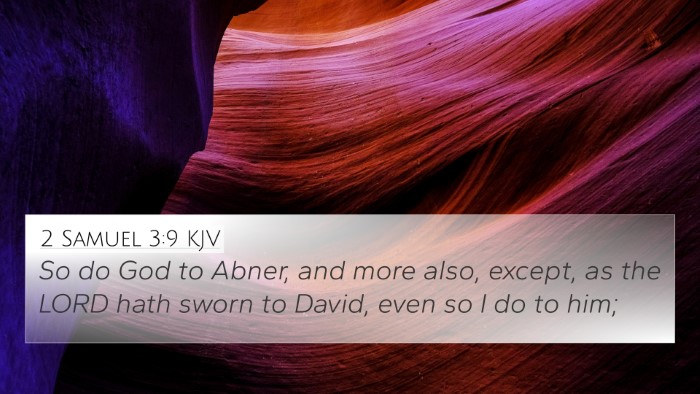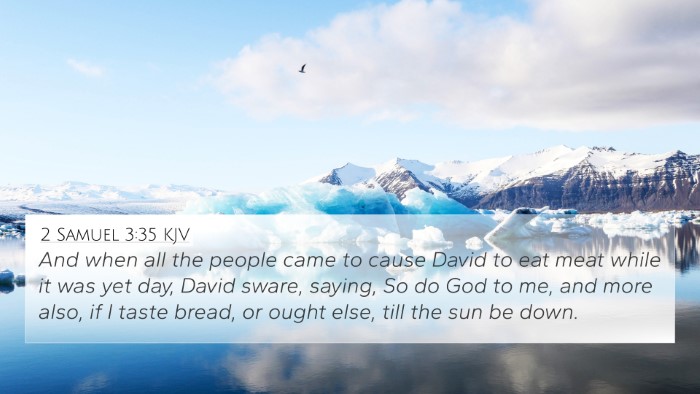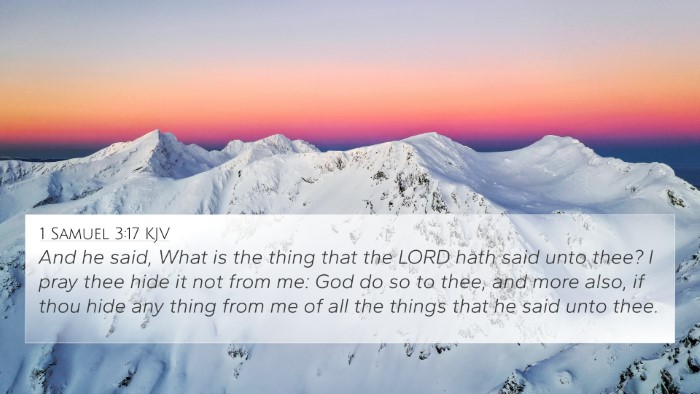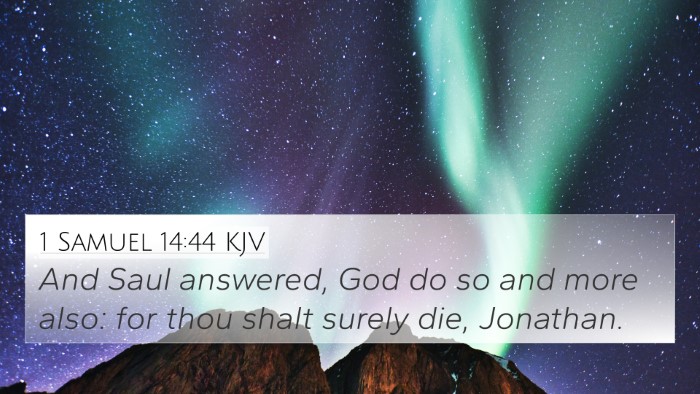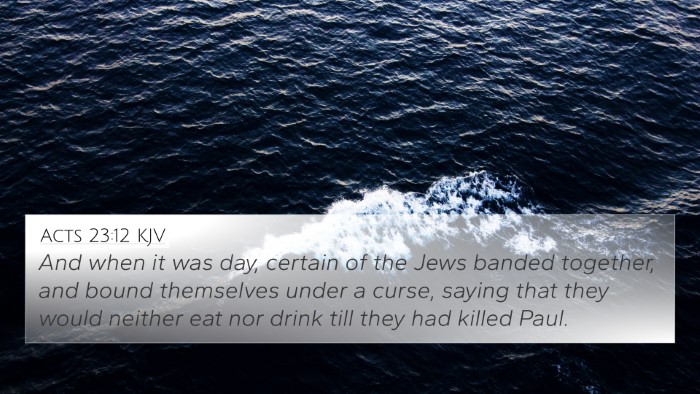Understanding 2 Kings 6:31
Verse: 2 Kings 6:31 (KJV) - "Then he said, 'God do so to me and more also, if the head of Elisha the son of Shaphat shall stand on him this day.'
Meaning and Interpretation
The passage from 2 Kings 6:31 encapsulates a moment of profound despair and anger expressed by the king of Israel during a time of siege by the Arameans. This situation reveals the depth of the famine in the land and the king's intention to lay blame on the prophet Elisha for the dire circumstances. Here, we will explore the insights from the commentaries of Matthew Henry, Albert Barnes, and Adam Clarke to provide a comprehensive understanding of this verse.
Context and Background
This verse comes at a time when the city of Samaria was besieged, leading to extreme conditions that resulted in desperation among its inhabitants. The famine was so severe that it led to moral decay, as depicted by prior verses (2 Kings 6:28-29) where horrific acts like cannibalism occurred. The utterance of the king reflects a critical point in the narrative, showcasing his internal conflict and misplaced wrath against God's servant.
Commentary Insights
Matthew Henry's Commentary
Matthew Henry points out that the king's proclamation showed how deeply he was consumed by rage and desperation. He emphasizes the significance of the king's tone—a vow invoking divine retribution against himself if Elisha were not punished. This hyperbolic sentiment reflects a turning away from God, as the king misplaces his anger, revealing a lack of understanding of God's sovereignty in calamity.
Albert Barnes' Notes
Albert Barnes elaborates on the gravity of the situation, explaining that the king's reaction stemmed from a refusal to acknowledge God's involvement in their suffering. Barnes highlights that by directing his ire towards Elisha, the king inadvertently declared his inability to see beyond the immediate troubles, failing to recognize that Elisha was a conduit of God’s grace and potential deliverance. Barnes suggests that the king's words could be seen as a prophetic foreshadowing of judgment against those who oppose God’s messengers.
Adam Clarke's Commentary
Adam Clarke provides additional layers to the analysis by emphasizing the desperation that leads to the king’s hollow threats. His analysis indicates that the calamity had reached such a point that even the hope projected by God's instruments had been largely dismissed by those in authority. Clarke emphasizes the king’s failure to seek God through Elisha, therefore placing himself in a precarious spiritual position that invited further calamity.
Cross-References and Related Scriptures
To deepen the understanding of 2 Kings 6:31, we can identify these significant cross-references that reflect similar themes of human conflict, divine retribution, and prophetic roles:
- 2 Kings 6:28-29: The context of despair and famine.
- 1 Kings 19:2: The threats against Elijah, reflecting the hostility towards God’s prophets.
- 2 Chronicles 20:12: Seeking God's guidance in times of trouble.
- Isaiah 31:1: A reminder of the folly of looking to human solutions rather than divine.
- Lamentations 3:39-40: Self-examination in the face of suffering.
- Matthew 23:37: Jesus’ lament over Jerusalem and its rejection of prophets.
- Luke 18:7-8: God avenging His elect, showing hope in divine justice.
- James 5:17-18: The effectiveness of prayer from a righteous individual, akin to Elisha’s role.
- Hebrews 11:32-34: The faith of biblical leaders, despite dire circumstances.
- Romans 12:19: A reminder of God's vengeance and the call to leave judgment to Him.
Thematic Connections and Reflections
Exploring thematic connections, the verse and its surrounding context underscore the dynamics of faith, despair, and divine purpose. The actions of the king serve as a cautionary tale against blaming God or His messengers in times of distress. Instead, true understanding comes from seeking God amidst trials. The inter-Biblical dialogue across the listed scriptures highlights how the struggles faced by individuals in desperation are a recurring theme throughout scripture, underscoring God's sovereign role in human affairs.
Practical Applications
For readers today, 2 Kings 6:31 can be a sobering reminder of the importance of turning towards God in moments of crises rather than resisting His counsel. It serves to encourage believers to look for God's purpose and presence in trials rather than laying blame on His messengers. Emphasizing the hope found in God through the cross-references can provide reassurance that even in dire straits, faith in God's plan remains paramount.
Conclusion: In summary, 2 Kings 6:31 illustrates a powerful moment of human emotion intersecting with divine purpose. By studying this verse alongside various cross-references, one can gain deeper insights into the nature of God's dealings with humanity amid calamity and the necessity of faith in Him.


